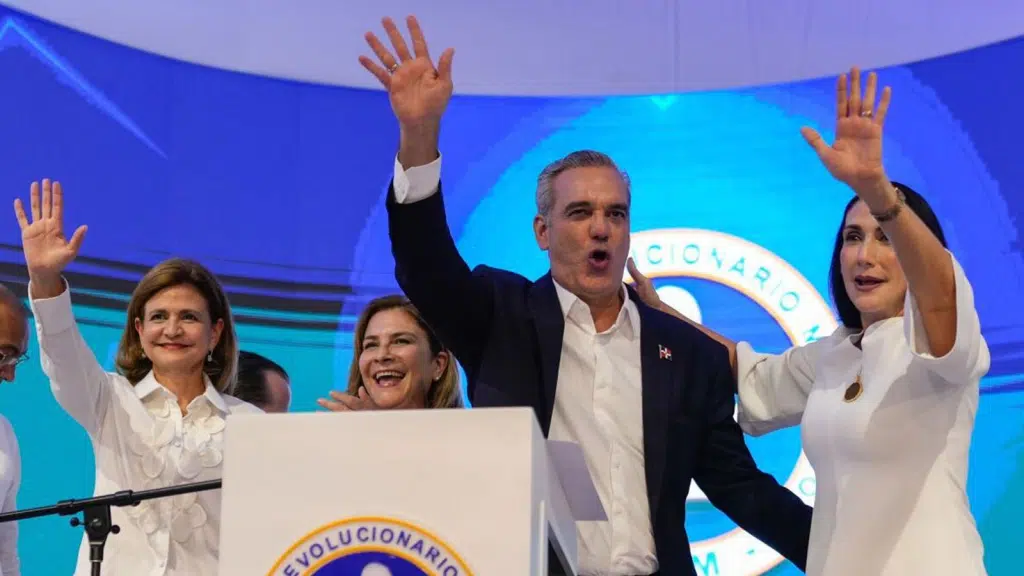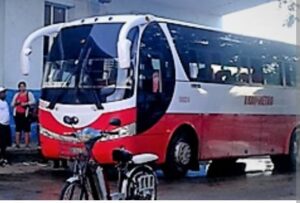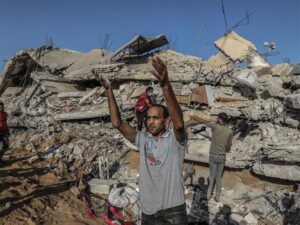By Mariela Pérez Valenzuela
Chief Correspondent in the Dominican Republic
The re-elected Dominican president, Luis Abinader, faces another four years of government, in which he is expected to maintain the continuity of his first administration on some fronts and prioritise crucial issues for the population, since, although the national economy is growing, the country shows an unequal redistribution of its profits.
Abinader, 56, of the Partido Revolucionario Moderno (PRM), comes from a wealthy family of Lebanese origin, is an economist – with several degrees obtained in the United States and business experience, including in his family’s firms.
The economic issue is set to be central to the dignitary’s agenda. A report by the Inter-American Development Bank, published last March, indicated that about one percent of the top local fortunes control about 42 percent of the nation’s total wealth.
Quisqueya, the original indigenous name for the country that shares the island of Hispaniola with Haiti, is home to some 11 million people. The high emigration rate shows that the economic situation has pushed a large population to other countries.
Although the Dominican Republic has experienced significant economic growth in recent years, Abinader will try, he said, to bring in new foreign investment that will promote more jobs, without forgetting that he made the fight against corruption one of his promises when he took office in 2020, under the ravages of the Covid-19 pandemic.
Official data indicate that in 2023 tourism contributed 10 billion dollars to the Gross Domestic Product (GDP).
Remittances from abroad amounted to almost 11 billion dollars, 3.1 per cent more than in the previous year, and foreign direct investment reached a record high of four and a half billion dollars, especially in hotel construction.
However, despite these high rates, job creation in recent years has fallen short of expectations and the unemployment rate stood at 5.0 per cent in the last quarter of 2023, while half of the economically active population lives in the informal economy, in many cases in precarious situations.
Poverty affected almost a quarter of the population in the last four years, and extreme poverty affected three per cent.
Information provided by the Abinader administration admits that most of the low-income groups reside in urban areas, and 63 per cent are headed by women.
Abinader is indebted to the local female mass and will have to strive to achieve gender parity that is currently non-existent.
The disadvantaged position of Dominican women was expressed in the recent elections, where out of nine candidates for the National Palace only two were women, a situation similar to that of those running in the municipal elections last February, especially in high positions.
In the opinion of analysts, the social policies implemented in the last four years have only been a palliative in the bloody social scenario in which a large part of the population subsists. The president should therefore address the structural problems of a service economy.
According to experts, global value chains assign the Dominican Republic the role of operating as a technological maquiladora, boosted by the multiple existing free trade zones, private, state and mixed, installed in its territory since 1985.
In addition, it should be considered that this part of the island is one of the main tourist destinations in the region, with more than 10 million visitors in 2023; at the same time, it has a mineral basin and a small manufacturing industry.
The PRM administration showed particular interest in Information and Communication Technologies (ICT), tools and software used to create new ways of doing so in different sectors.
At the beginning of last year, the National Statistical Office registered 2,187 enterprises operating with ICTs, which, according to that source, employ 33,000 people, with a two-to-one ratio of men to women.
Another important piece of information provided by the government is that export earnings from manufactured goods reached just over 1.5 billion dollars in total in 2023. Of this figure, mining production without adding value at source accounts for 50.18 per cent, the industrial sector for 48.04 per cent, and the rest comes from agricultural production.
One of the recurring themes in Abinader’s second term in office will be migration. This sensitive issue is fundamentally focused on the controversial historical relationship with neighbouring Haiti.
In response to Haitian farmers’ decision to promote an irrigation canal on the Masacre River (Dajabón in the Dominican Republic), the ruler decided to close the common border and strengthen the military presence, with a decline in bilateral trade considered essential by the parties.
In recent declarations, and in view of the imminent arrival of a multinational force in Haiti to try to neutralise the paramilitary groups, the president emphasised that his country will not integrate any foreign teams and will only provide humanitarian aid if necessary.
For analysts, his stance on the crisis in neighbouring Haiti in defence of national sovereignty, by promoting the construction of a border fence, rejecting the arrival of refugees and increasing deportations of Haitians and citizens in an irregular situation, is welcome.
In the last year, close to 200,000 Haitians were deported from Haiti.
Despite the official position, sectors of the Dominican economy such as agriculture and construction depend on Haiti because of bilateral trade relations and the use of migrant labour at very low cost. A latent and important contradiction for the new administration.
Political observers consider that Abinader’s plans until 2028 are varied and tend, at least in his speeches, to improve the quality of life of the impoverished people, giving special attention to education, health care, housing and other branches of the national superstructure.
For his second term, he faces challenges such as inflation and citizen insecurity, one of the greatest concerns of Dominicans, and he proposes reforming the Constitution to strengthen institutions such as the Public Prosecutor’s Office.
But practice is richer than theory. It is necessary to look at the domestic and international conditions in which this businessman, who entered politics in 2012 and eight years later was already wearing the presidential sash, will perform.




